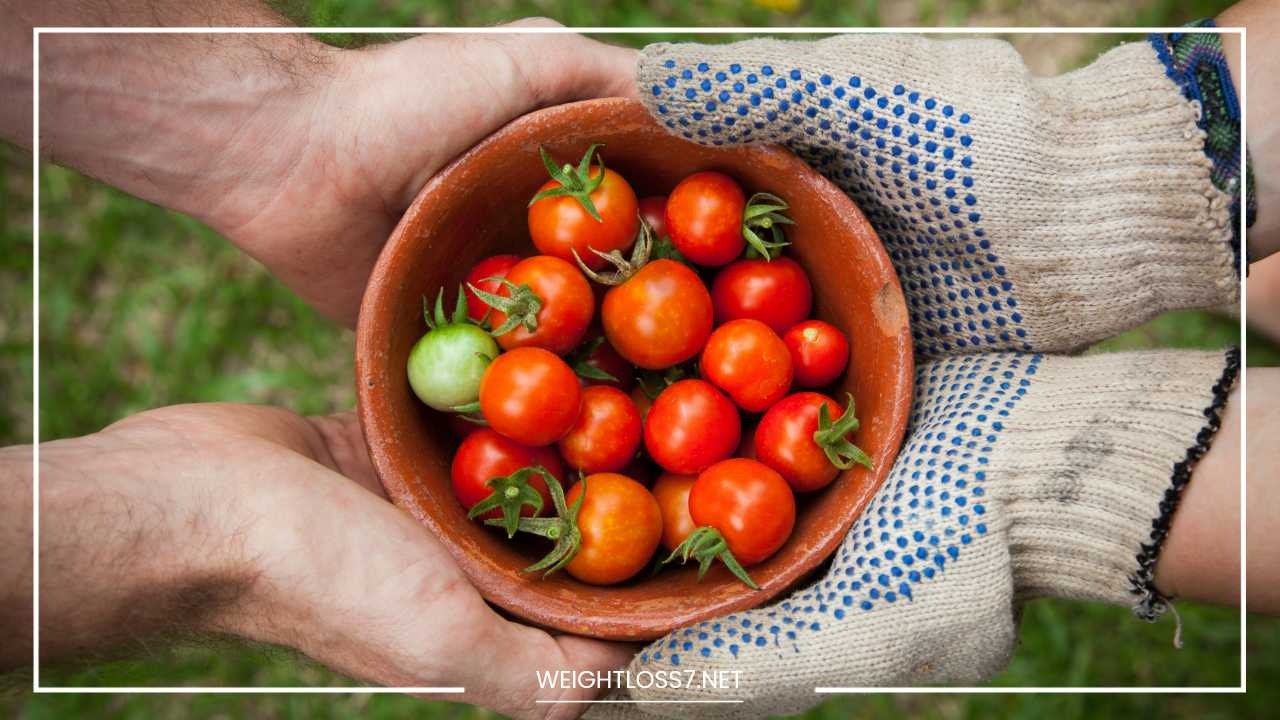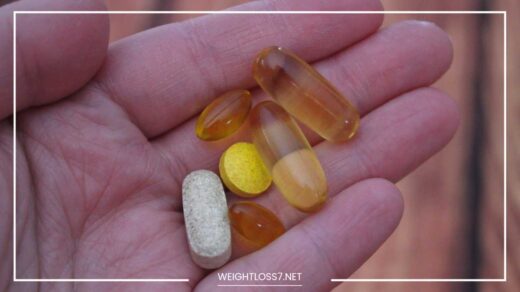Going Organic: Nurture You & the Planet

Going Organic
Going Organic: Cultivating a Healthier You, a Thriving Planet, and a Sustainable Future
In today’s fast-paced world, navigating the grocery aisles and making informed decisions about what we consume can feel overwhelming.
With a growing focus on health and environmental consciousness, the concept of “going organic” has emerged as a powerful movement. But what exactly does “organic” mean, and why should you consider integrating it into your lifestyle?
This comprehensive guide dives deep into the world of organic living, exploring its multifaceted benefits for your health, the environment, and even your wallet.
We’ll delve into the core principles of organic practices, address common concerns and misconceptions, and equip you with practical tips on making a smooth transition.
Unveiling the Organic Standard
“Organic” is more than just a marketing buzzword. It signifies a strictly regulated approach to agriculture established by the USDA National Organic Program (NOP).
This program ensures products meet a stringent set of criteria, promoting a more sustainable and holistic food system. Here are some key pillars of organic farming:
- Natural Pest Control: Organic farmers turn to nature’s arsenal instead of synthetic pesticides and herbicides. They employ crop rotation, beneficial insects like ladybugs and praying mantises, and organic sprays derived from plants or naturally occurring substances like neem oil.
- GMO-Free Zone: Genetically Modified Organisms (GMOs) are off-limits in organic agriculture. This ensures food remains free from potential risks associated with genetic manipulation.
- Animal Welfare Takes Center Stage: Organic animal husbandry prioritizes the well-being of livestock. Animals have access to the outdoors, are raised on organic feed, and are not routinely treated with antibiotics or growth hormones. This not only benefits animal health but also contributes to the quality and taste of the meat and dairy products we consume.
- Nourishing the Soil: Organic practices prioritize soil health, the foundation of a robust agricultural system. Farmers utilize natural fertilizers like compost and manure to enrich the soil, fostering a thriving ecosystem of microorganisms that enhance plant growth and nutrient availability.
Beyond Produce: Expanding the Organic Philosophy
While organic food often dominates discussions, the philosophy extends far beyond your grocery list. Here are some ways to embrace a holistic organic approach in various aspects of your life:
- Dress Sustainably: Opt for clothing crafted from organic cotton, hemp, or linen. These natural materials are gentler on your skin and produced with minimal environmental impact compared to conventional textiles.
- Embrace Natural Personal Care: Ditch harsh chemicals and synthetic fragrances in your beauty routine. Look for organic shampoos, lotions, and cosmetics formulated with plant-derived ingredients that are kinder to your skin and the environment.
- Clean Green: Bid farewell to harsh chemical cleaners. Explore organic cleaning products made with plant-based ingredients like vinegar, baking soda, and essential oils. These eco-friendly options are safer for your family and home while tackling dirt and grime effectively.
The Organic Advantage: A Boon for Your Health
Choosing organic offers a plethora of benefits for your overall well-being:
- Nutrient Powerhouse: Studies suggest that organic fruits, vegetables, and grains may contain higher levels of vitamins, minerals, and antioxidants compared to their conventionally grown counterparts. This translates to a more nutritious diet that supports a healthy immune system and overall well-being.
- Minimizing Pesticide Exposure: By opting for organic produce, you significantly reduce your exposure to synthetic pesticides. These chemicals have been linked to various health concerns, including cancer, hormone disruption, and neurological problems. Making the organic switch is a proactive step towards a healthier you.
- Combating Antibiotic Resistance: Organic meat and dairy products come from animals raised without routine antibiotic use. This helps combat the growing issue of antibiotic-resistant bacteria, a major public health threat. Reducing our reliance on antibiotics in livestock production is crucial for ensuring the effectiveness of these life-saving medications in human medicine.
The Greener Side of Organic: Protecting Our Planet
Beyond personal health benefits, organic agriculture plays a vital role in environmental sustainability:
- Cleaner Waterways: Conventional farming practices rely heavily on synthetic fertilizers and pesticides. Organic methods minimize this pollution, protecting our water sources and promoting healthy aquatic ecosystems.
- Biodiversity Flourishes: Organic farms become havens for beneficial insects, birds, and other wildlife. By eliminating synthetic pesticides and herbicides, organic agriculture fosters a more diverse and balanced ecosystem. This biodiversity is crucial for a healthy planet.
- Preserving Our Soil: Organic practices nurture soil health by promoting microbial activity and reducing erosion. Healthy soil retains water more effectively, leading to improved drought tolerance and increased agricultural productivity in the long run. This translates to a more resilient and sustainable food system.
The Organic Journey Begins: Practical Tips for Making the Switch
Transitioning to organic living might seem intimidating at first. But fear not! Here are some practical tips to make your journey smoother:
- Start Small: Don’t overwhelm yourself by trying to overhaul your entire lifestyle overnight. Begin by incorporating organic options for the “Dirty Dozen,” a list compiled by the Environmental Working Group (EWG) that identifies fruits and vegetables with the highest pesticide residue. Focus on prioritizing organic versions of these items, and gradually expand your organic purchases over time.
- Shop Local: Support your local farmers markets and Community Supported Agriculture (CSA) programs. This allows you to connect directly with local organic farms, ensuring freshness and supporting sustainable agricultural practices in your community. Many CSAs offer flexible subscription plans, allowing you to receive a regular box of seasonal organic produce, tailored to your dietary needs and preferences.
- Embrace Bulk Buying: Purchase organic staples like dry beans, grains, nuts, and seeds in bulk to save money. Many grocery stores and online retailers offer bulk options for organic dry goods at a discounted price per unit. This is a cost-effective way to stock up on pantry essentials while staying committed to organic choices.
- Befriend the Label: The USDA Organic seal signifies that a product is certified organic. Familiarize yourself with this logo and make it a habit to check for it while shopping. This ensures you’re making informed choices and supporting certified organic producers.
- Plan and Prioritize: Planning your meals and grocery list can help you stay on track with your organic goals. Consider seasonal availability when creating your shopping list. This not only allows you to take advantage of the freshest produce but can also save money on out-of-season items.
Addressing Common Concerns and Misconceptions
While the benefits of organic living are undeniable, some concerns and misconceptions persist:
- Cost Factor: Organic products often carry a higher price tag compared to their conventional counterparts. However, consider it an investment in your health and the environment. There are ways to manage costs, like focusing on the Dirty Dozen and buying staples in bulk. Additionally, the long-term health benefits and reduced healthcare expenses can potentially offset the initial cost difference.
- Availability Challenge: Organic options might be harder to find, especially in certain areas. Don’t get discouraged! Explore local farmers markets, dedicated organic stores, or online retailers specializing in organic products. Joining a CSA can also guarantee access to a consistent supply of fresh organic produce.
- Yield Concerns: Some argue that organic farming produces lower yields compared to conventional methods that rely heavily on synthetic fertilizers and pesticides. However, organic practices are becoming increasingly efficient, with advancements in techniques and crop rotation strategies. Moreover, the long-term benefits of organic farming, such as improved soil health and biodiversity, outweigh short-term output concerns.
The Ripple Effect: A Sustainable Future for All
Choosing organic is a powerful statement. It’s a conscious decision to prioritize your health, the well-being of the planet, and a more sustainable future for generations to come.
Every organic item you choose is a ripple in a pond, creating positive change that extends far beyond your grocery cart. By supporting organic farmers, you’re contributing to a healthier food system, cleaner water sources, and a more vibrant ecosystem.
Embrace the Journey: It’s a Continuous Learning Process
Going organic is a journey, not a destination. There will be times when organic options aren’t readily available, or you might face budget constraints.
Don’t be discouraged! The key is to make informed choices as often as possible and celebrate your progress along the way. Remember, even small changes can make a significant difference.
There are also numerous resources available to help you on your organic journey. Explore websites and publications from reputable organizations like the USDA National Organic Program, the Environmental Working Group, and local organic farming associations.
They provide valuable information on organic practices, product selection tips, and recipes that celebrate seasonal organic ingredients.
By embracing an organic approach, you’re not just making a personal choice; you’re contributing to a collective effort towards a healthier planet and a more sustainable future.
So, take the first step today, and embark on a rewarding journey that nourishes your body, the environment, and the future.
The Organic Lifestyle: Expanding Your Horizons
While organic food is a cornerstone of organic living, there are additional ways to integrate this philosophy into your daily routine:
- Organic Cleaning Solutions for a Healthy Home: Consider DIY cleaning solutions using natural ingredients like vinegar, baking soda, and lemon juice. These are effective against dirt and grime, leaving your home sparkling clean without harmful chemicals. Explore online resources for a plethora of DIY cleaning recipes tailored to various cleaning tasks.
- Organic Home Decor: Opt for natural and sustainable materials when decorating your home. Look for furniture crafted from reclaimed wood, bamboo, or recycled materials. Choose organic cotton or linen curtains and rugs for a touch of eco-friendly style.
- Embrace Organic Gardening: Growing your own organic produce allows you to control exactly what goes into your food. Start small with a container herb garden on your windowsill or a raised bed in your backyard. Experiment with different organic gardening techniques like composting and companion planting to create a thriving little ecosystem.
The Power of Community: Joining the Organic Movement
There’s strength in numbers! Connecting with others who share your passion for organic living can be incredibly motivating and informative. Here are some ways to get involved:
- Support Local Farmers Markets: These vibrant marketplaces often act as hubs for organic producers. Engage with the farmers, learn about their practices, and discover unique seasonal offerings.
- Join a CSA Program: Becoming a member of a CSA allows you to directly support local organic farms while receiving a regular supply of fresh, seasonal produce. Many CSAs offer flexible options to cater to your dietary needs and preferences.
- Connect with Online Communities: Explore online forums and social media groups dedicated to organic living. These platforms allow you to exchange tips, recipes, and resources with like-minded individuals, fostering a sense of community and shared purpose.
The Future of Organic: Innovation and Progress
The organic movement is constantly evolving, with research and innovation paving the way for a more sustainable future. Here’s a glimpse into some exciting advancements:
- Regenerative Agriculture: This emerging approach focuses on restoring soil health and promoting biodiversity. Regenerative practices can improve crop yields, enhance water retention, and create a more resilient agricultural system.
- Technological Advancements: New technologies like precision agriculture and robotics are being explored to optimize organic farming practices. These advancements can help farmers improve efficiency, reduce waste, and ensure consistent quality organic produce.
- Consumer Awareness and Demand: As consumer awareness of the benefits of organic living grows, the demand for organic products continues to rise. This increased demand is encouraging investment in organic research, education, and infrastructure, fueling the growth of the organic sector.
Final Word: A Rewarding Journey Towards a Healthier Tomorrow
Going organic is more than just a dietary choice; it’s a holistic approach to living that prioritizes your well-being, the environment, and a sustainable future for all.
By embracing organic practices, you’re contributing to a healthier food system, cleaner waterways, thriving ecosystems, and a more resilient planet.
The journey towards organic living is a rewarding one. Every step you take, from choosing organic produce to supporting local farmers, creates positive ripples that contribute to a larger movement.
Remember, it’s not about perfection; it’s about making conscious choices and striving towards a more sustainable future.
So, embrace the journey, celebrate your progress, and inspire others to join you in cultivating a healthier you, a thriving planet, and a brighter future for generations to come.

















